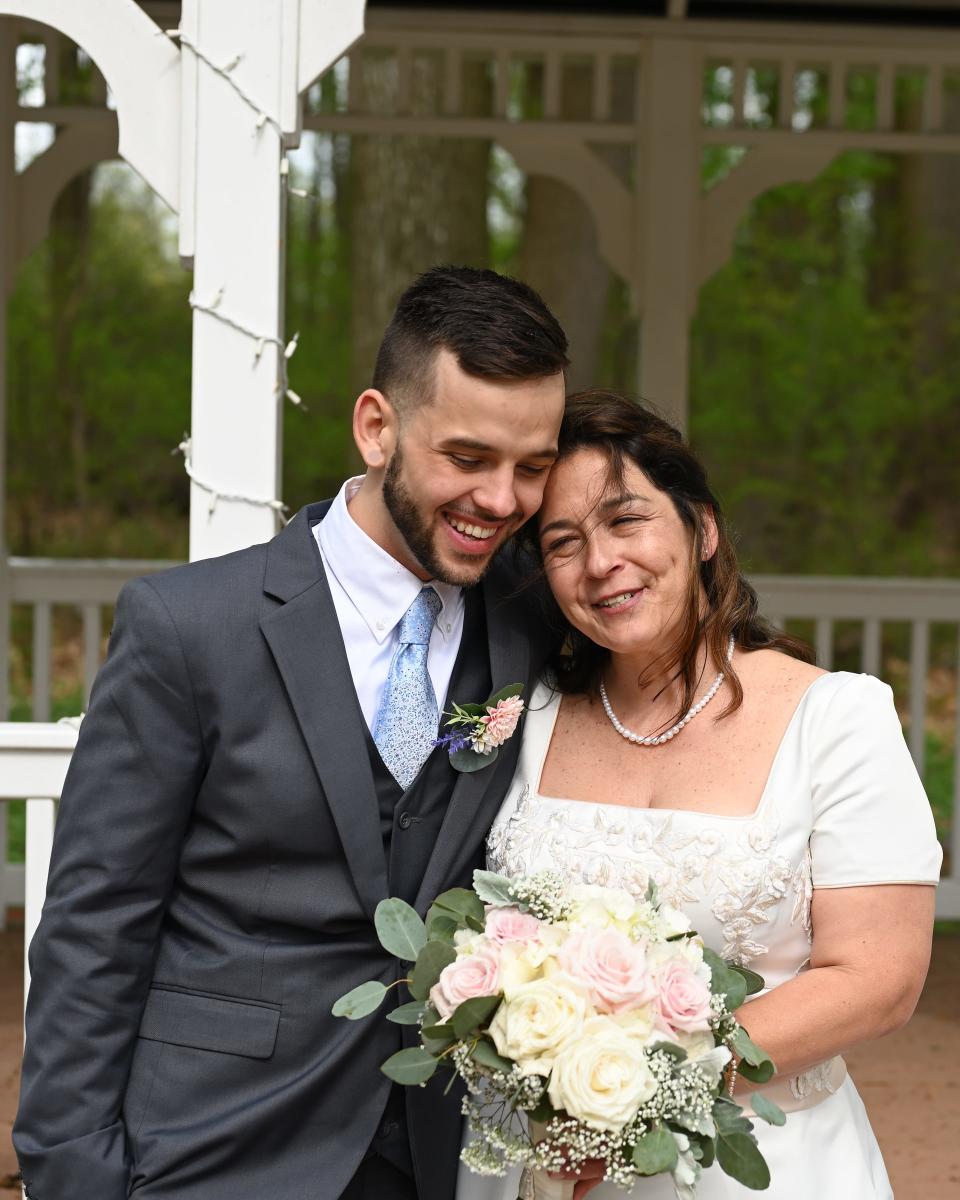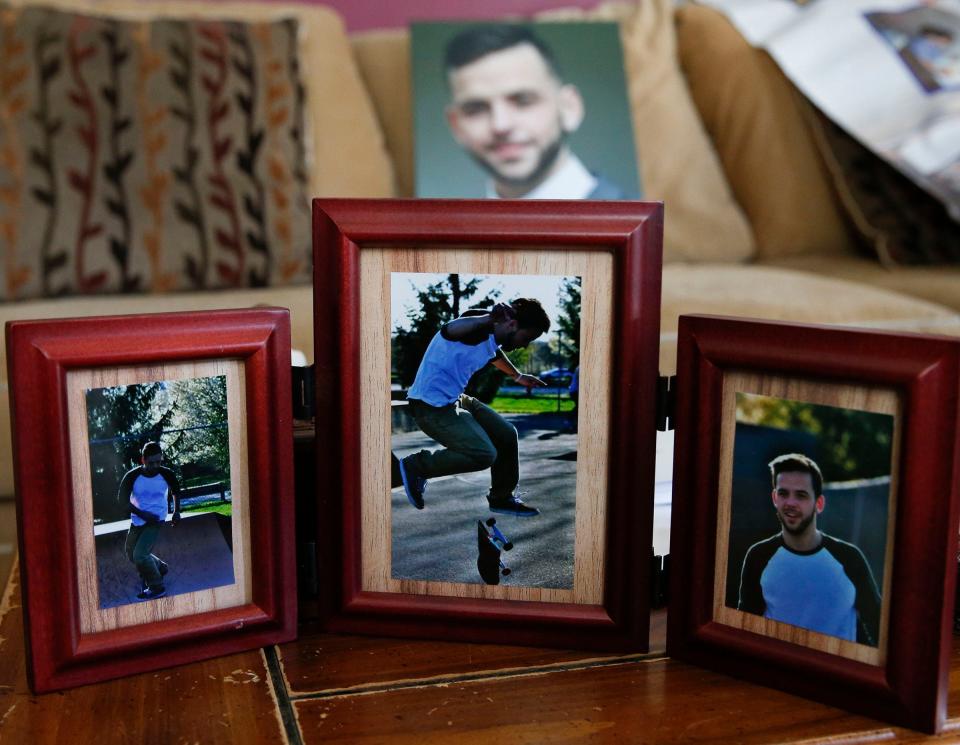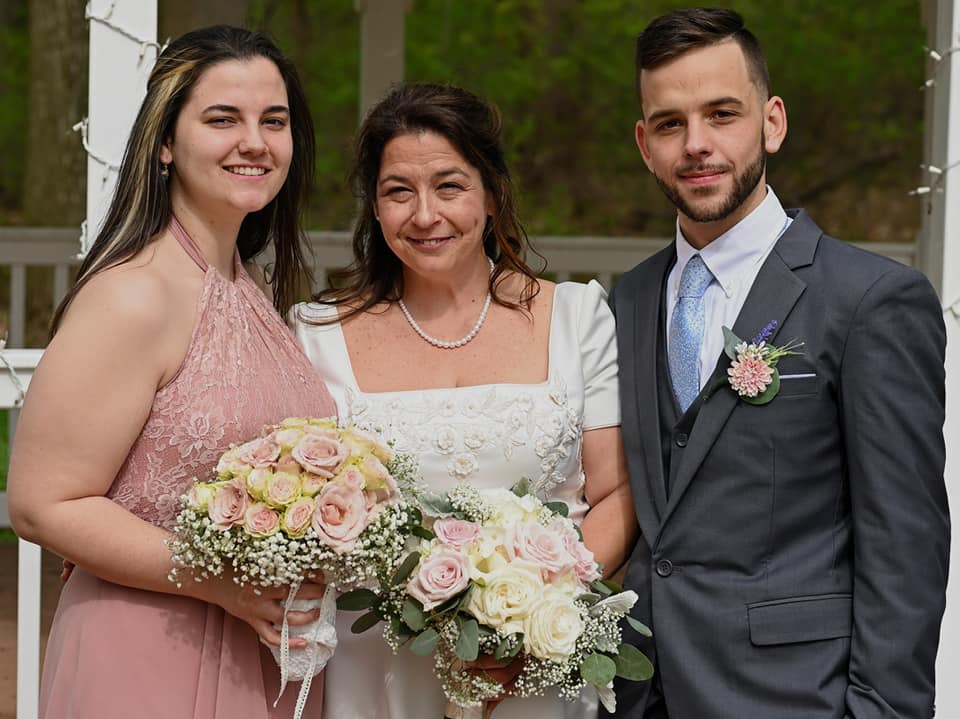I lost a child to opioids. Compassion, not criminalization, could spare others my grief.
When you lose a child, finding ways to ensure they are remembered and that the same tragedy doesn’t befall other parents becomes a priority.
I lost my son, Tyler, to an accidental overdose in 2020. Since then, I’ve met parents grieving the loss of their children who battled substance use. It’s a struggle no parent should endure, and it’s made even more difficult by those in power who, in our children’s name, push policies rooted in punishment over solutions rooted in compassion and public health.
The Drug Enforcement Administration (DEA), law enforcement across the United States and our lawmakers need to consider how their actions and policies affect grieving parents. Misdirected anger and encouragement by law enforcement and politicians lead some parents to pursue retribution, like pushing for charges against their deceased child's friends who were present at the time of their death.
Addiction stigma and punishment let our children down
Not only do these arrests often leave parents feeling unsatisfied, but they are counterproductive and fail to prevent further overdose deaths.
Race of cops doesn't matter: Tyre Nichols killing shows that to some cops, even Black ones, Black lives don't matter
National Drug Control Policy: Opioid addiction is a disease. We cut red tape so doctors can finally treat it effectively.
Parents’ hurt and anger are too often manipulated and wielded against individuals who are themselves struggling with addiction, rather than used to dismantle the system of stigma and punishment that let our children down.
Tyler had the kindest soul I ever met. His giant smile and generous heart lit up the room when he entered. He was the first to introduce himself to the new students at school and show them around. It became common practice for him to invite strangers to our home on holidays because he never wanted anyone to be alone.

What many didn’t know was that he struggled with crippling social anxiety and eventually experimented with substances to find relief. Unfortunately, prescription opioids were the most accessible to him and he quickly found himself unable to control his use.
He wanted nothing more than to live a substance-free, healthy life, but multiple barriers prevented him from getting the help he needed to stop. Tyler loved life and even with all of the darkness that came with his struggles, he was the light in the lives of his sister, Mary, and me.

I’ve shared space with aggrieved parents, and the regret from seeking punishment only adds to their trauma and further complicates grief. When you understand that the college student who took a pill at a party is no different than the chronic pain patient who was abandoned after finally finding relief or the veteran who found a way to temporarily suppress their triggers, we can operate from a place of compassion.
They are all the same person. The only difference between them is what may have led them to use. It is not a reflection on your parenting that your child was taken too soon by an unknown and increasingly adulterated drug supply.
The war on drugs playbook is losing
Politically motivated grief predators prey on vulnerable parents and construct dangerous barriers in the fight to reduce stigma and save lives. The idea that people who sell drugs are intentionally poisoning us or that fentanyl should be considered a weapon of mass destruction are tactics from the outdated "war on drugs" playbook.
In fact, fentanyl is a valuable therapeutic medicine and fentanyl analogues, or fentalogs, could be an instrumental source for future medications to treat overdoses and substance use disorder.
America is ready for marijuana reform: Biden's pardon announcement proves it
Cannabis is legal in most of America: But federal laws still block businesses from banks
There is a better way. There are leaders advocating for real solutions.
Recently introduced by Sen. Cory Booker, D-N.J., the Temporary Emergency Scheduling and Testing (TEST) of Fentanyl Analogues Act paves a legal pathway for fentalogs that could save lives.

The TEST Act is supported by a wide range of civil rights and policy experts. Because synthetic drugs are now so inexpensive to manufacture and distribute, if fentanyl and fentalogs are prohibited, there is likely another more powerful, deadly and unregulated substitute on the horizon. Xylazine, a substance involved in my child’s death, is already showing us how important it is to focus on the demand, not the supply.
In addition to the TEST Act, the Breakthrough Therapies Act, introduced by Sen. Booker and Sen. Rand Paul, R-Ky., is a bipartisan proposal that would enable research to reschedule substances that the Food and Drug Administration (FDA) designates as potential breakthroughs for the treatment of substance use disorders, trauma, post-traumatic stress disorder and other mental health conditions.
I’m also proud that my congresswoman, Rep. Madeleine Dean, D-Pa., is working to break down barriers to access promising medical treatments that are now unavailable under flawed FDA and DEA rules.

Compassion, not criminalization, is the answer
The overdose epidemic is a public health crisis desperately in need of compassion and proven solutions, not criminalization. Our criminal justice system allows certain privileged people to go free, leaves victims with no real means of restitution or support, and continues to harm historically marginalized communities.
Opinion alerts: Get columns from your favorite columnists + expert analysis on top issues, delivered straight to your device through the USA TODAY app. Don't have the app? Download it for free from your app store.
This movement for compassion and proven public health solutions over criminalization is powered by parents like me. We hope that even more parents – whether you’ve gone through the incredibly painful experience of losing a child or not – join us.
We demand that our elected leaders prioritize saving lives in the midst of the overdose epidemic rather than relying on the old, ineffective war on drugs playbook of harsh criminal punishments.
It’s going to take a movement to get this done. We need you.

Susan Ousterman is the founder of the Vilomah Memorial Foundation, whose mission includes building a community of parent advocates.
You can read diverse opinions from our Board of Contributors and other writers on the Opinion front page, on Twitter @usatodayopinion and in our daily Opinion newsletter. To respond to a column, submit a comment to letters@usatoday.com.
This article originally appeared on USA TODAY: Opioid overdose killed my son. More criminalization won't help others

